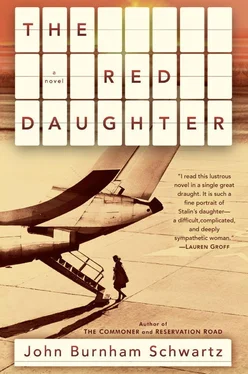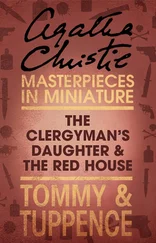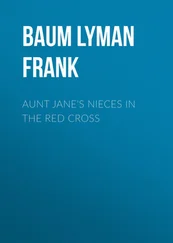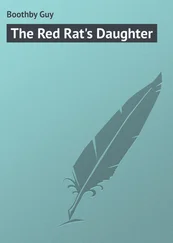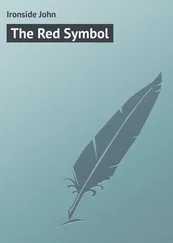And reading my son’s letter, I thought of my infant daughter in her hospital incubator only hours after her birth, the size of my hand and already struggling to insist herself on the world. That those days of miraculous survival should have led, after so much frightened love, to these decades of profound absence and familial dislocation feels now, I tell you, like nothing less than a crime against humanity, the true guilt for which can be laid at the feet of only one person. And that person is me.
The photo of himself that Josef chose to include with his letter presented its own documentary case for the effects of unhappy living (or perhaps the unhappy effects of living). My first nauseating impression was that I was looking at a photograph of my alcoholic brother Vasily in the months after his return from prison. But this middle-aged man, my Josef, rather, for all his mournful, balding dissolution, gave off none of Vasily’s desperate insubordination. My boy looked ill and weary and sad.
I could not help myself. If I could not save my Russian daughter, I could still save my Russian son. I went straight to the phone. He’d given me his number and I dialed it with clumsy fingers. The Soviet tone: four, five times resounding and with each one the bloody KGB pounding on your door, then the double click—
Hello?
Josef, you stop your drinking!
Mother?
You stop it, Bunny! Do you hear me? Now pull yourself together. You’ll die if you keep on like this. I can see it in your face.
Mother, it’s the middle of the night.
So it was.
—
So the three of us, we’ve all got different dads, Yasha observes in faux Cockney, trying to scoop the last of the thrice-baked crumbs off his tea plate and into his mouth.
I look at him. Is he bitter? Perhaps not yet, but that is no guarantee of anything. Hungry, yes. Growing so fast he will have tree rings inside his legs.
You already know this, I say as gently as I can, in fact not sure whether I have been clear about the countless things that I have tried to hide from him for his own protection.
My youngest child shakes his head in frustration.
What do I tell him? What do I tell any of my children?
3 April
The thing that I feared has happened.
On Friday my phone rang early in the morning while I was still drinking my coffee and trying to get warm. A male voice with a pub accent on the other end of the line.
Am I speaking with Svetlana Stalin?
Who is this? For a moment, the bizarre half hope that I was enduring an April Fools’ prank. But then the voice continued:
Svetlana Alliluyeva? The blistering idiot pronounced my mother’s family name like hallelujah .
Whoever you are, you are mistaken, I insisted. My name is Lana Evans. I am an American citizen living in Britain. Call the embassy if you have questions. But do not call this number again!
I slammed down the phone receiver. But the call had shaken me. The next day I was planning to take the train to Saffron Walden to fetch Yasha for his Easter break. I decided I would not set foot outside my building until then.
Like the feeling one gets when one looks up in a barren landscape and finds a crow flying close overhead. The ominous creature has no business being there, is all one knows. One shudders, and for good reason.
—
I spotted the first reporter on the street in front of my building just past seven the next morning. I pulled the shade down over my kitchen window and went directly out of my flat and downstairs to ring Fiona’s buzzer.
It took her a minute to open the door. Heavy Irish cardigan thrown over her shoulders, smelling of old sheep, her thin gray hair out of sorts.
Lana, she said, clearly surprised. So early? Everything all right?
Fiona, you must not speak to anyone.
Oh, I wouldn’t. I don’t usually see many people as it is. What’s this about, dear?
No one outside. No one with the press.
The press? Lord, no. Why would I? No one with the press has any interest in me, that’s for sure.
Satisfied, I went back upstairs and dialed Yasha’s school. The line rang and rang. On my third frantic try a receptionist answered. I told her I must speak with Mrs. Channing, it was an emergency.
However, I was too late. Mrs. Channing came on the line already talking:
Mrs. Evans, I was just about to ring you. I’m afraid a most unfortunate situation has arisen.
—
Not expecting me to pick him up until later that day, Yasha was naturally alarmed when his Latin teacher, Mr. Logan, appeared in his room before breakfast and announced that there’d been a change of plans: I would not be coming and instead he, Mr. Logan, would be driving Yasha to Cambridge. My son was confused. (All this recounted to me once he was home.) Had he done something wrong? This was the start of Easter break, classes were out, and he’d handed in his last assignment as expected. Yet here in his room was old Mr. Logan, a Scottish Quaker, this morning especially taciturn, urgent, and pale-faced.
When are we going? asked Yasha.
Right this minute, replied the teacher.
The Latin man placed Yasha’s small suitcase in his rusticated Volkswagen Golf. Once Yasha had climbed into the backseat, he was told, Now lie down and spread that blanket over yourself.
The seat fabric of Logan’s car, Yasha noted from under the heavy woolen blanket, smelled faintly of dead fish.
Stay down, Logan ordered, as the car passed through the gates of the school and between the clamoring crowd of paparazzi gathered there—adding under his breath, Bloody parasite reporters .
The drive to Cambridge took an hour and a half. Once they were safe beyond Saffron Walden, Yasha was told he could take off the blanket and sit up. He found the English sky as usual depressive and damp, yet glaring. When twice during the journey he asked his teacher what was going on, each time the reply was a muttered quote in Greek from Marcus Aurelius:
1. Everything we hear is an opinion, not a fact. Everything we see is a perspective, not the truth.
2. You have power over your mind—not outside events. Realize this, and you will find strength.
Finally, they reached Cambridge. Time to hit the deck again, Jacob, Mr. Logan instructed. Don’t forget the blanket.
Another phalanx of paparazzi, this one outside our home at number 12b Chaucer Road, where they’d been agitating since dawn. Wielding history textbooks as much as cameras and pens, stalking my son with their flashbulbs and their shouted questions—no, not questions, indictments:
—Jacob, what do you think of your grandfather?
—Would you call him a mass murderer? Worse than Hitler?
—Why’d you and your mother change your names?
—Tell your mum to come out and speak to us!
—Have you ever been to the Soviet Union?
—Are you a Communist?
—Jacob, over here!
By this time I’d emerged on the sidewalk myself and was struggling through hostile bodies to reach Yasha, still trapped inside the car parked at the curb. A man with a large Nikon jumped in my face and I shoved him back with both hands, harder than either of us expected, in the process knocking his expensive camera to the ground.
Cunt! he growled. I’ll get you fuckin’ deported for that.
I leave when I want! I screamed at him, cursing him in Russian, suddenly so enraged I could no longer claim to be right in my own head.
Читать дальше
